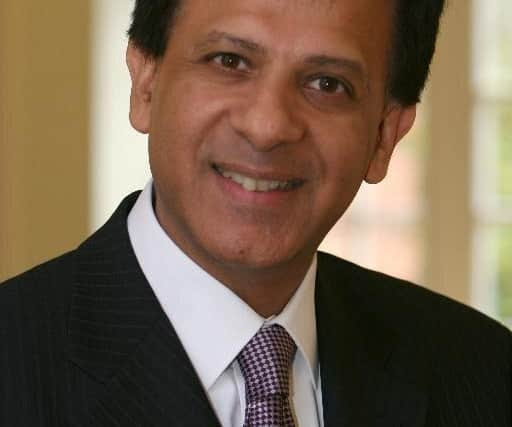Sheffield death rate dipped below usual in July after earlier spike
and live on Freeview channel 276
But despite a national dip in deaths, doctors warn the NHS must be given whatever it needs to deal with a "triple whammy" threat of rising cases, winter pressure, and huge patient backlogs.
Office for National Statistics figures show 351 deaths were recorded in Sheffield during July. That was 78 fewer than the number recorded in July 2019, a drop of 18 per cent.
Advertisement
Hide AdAdvertisement
Hide AdSheffield had seen a jump in fatalities in previous months, with deaths up by 122 per cent in April, 23 per cent in May and 5 per cent in June.


The figures still mean there were 592 more deaths in Sheffield in the year to the end of July than at the same point last year.
Across England and Wales, there were 40,731 deaths recorded in July, lower than the 42,192 seen a year earlier.
That was the first time deaths had dropped below last year's level since the start of the pandemic in March.
Advertisement
Hide AdAdvertisement
Hide AdOverall, 374,013 deaths were recorded between January and the end of July, an increase of 61,179 on the same point in 2019.
The British Medical Association said it was difficult to draw conclusions from the drop in deaths in July.
But its chairman, Dr Chaand Nagpaul, speaking at the group's annual conference on September 15, said it was "imperative" the Government give the NHS the resources it needs to deal with a "triple whammy of the non-Covid backlog, the ongoing risk of a second spike, and winter pressure".
A poll of more than 8,000 English doctors and medical students by the BMA found 86% believe a second coronavirus spike is imminent in the next six months, with a peak during winter their number one concern for the health service.
Advertisement
Hide AdAdvertisement
Hide AdDr Nagpaul said an overstretched NHS had lacked capacity at the start of the pandemic, leaving millions of patients to become "collateral damage" as services were halted.
He said: “The pandemic was a shock to the world, but as coronavirus reached our shores, our overstretched NHS already had record waits for operations, cancer treatments and GP appointments. We had 10,000 unfilled doctor vacancies, and only a quarter of Germany’s critical care beds.
"This lack of capacity forced the NHS to halt so many services during the pandemic. For over three months we didn’t have a National Health Service but primarily a national Covid service.
“This hidden impact of the pandemic in part explains the tragic levels of excess mortality in the UK with an estimated 12,000 of these deaths being attributed to non-Covid causes."
Advertisement
Hide AdAdvertisement
Hide AdA government spokeswoman said: “We have made significant strides in stopping the spread of coronavirus – this includes delivering 3.3 billion items of PPE to the front line with 31 billion items ordered, NHS Test and Trace testing hundreds of thousands of people every day, and almost 360,000 people contacted who may have been unwittingly spreading the virus.
She added the Prime Minister had announced a further £3 billion of winter funding to relieve winter pressure on the NHS.
FROM THE EDITOR
Thank you to all who support local journalism with a digital or print subscription to The Star. The events of 2020 mean trusted, local journalism is more reliant than ever on your support. We couldn't do it without you. Subscribe here www.thestar.co.uk/subscriptions so we can keep campaigning on your behalf. Stay safe.
Comment Guidelines
National World encourages reader discussion on our stories. User feedback, insights and back-and-forth exchanges add a rich layer of context to reporting. Please review our Community Guidelines before commenting.